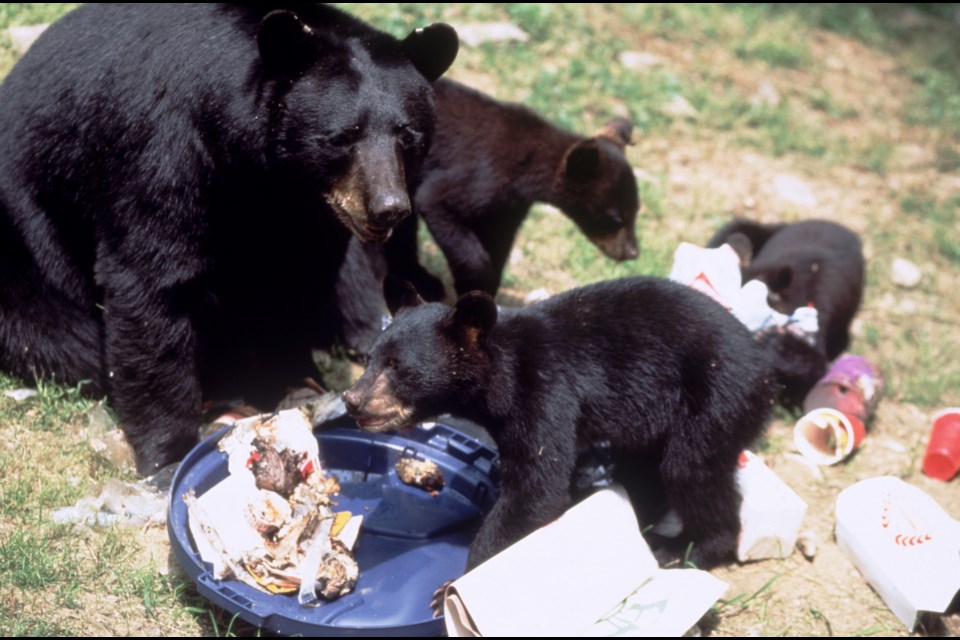Most Coquitlam residents are locking up their bins and setting them out at the right times to stop critters from coming around, according to a city report released this week.
On Monday (July 12), city staff said enforcement warnings and tickets for non-compliance under the Solid Waste Bylaw have dropped 79% over the past four years, when Coquitlam received the provincial designation as a Bear Smart Community.
Last year, Coquitlam issued 1,041 enforcement warnings and tickets versus 5,364 in 2017.
In his report on the 2020 Urban Wildlife Program Update and 2021 Early Cart Set Out Audit Results, the city’s general manager of engineering and public works said education efforts have played vital roles to stop wildlife from becoming habituated to human food.
Last year, as more people were outside during the COVID-19 pandemic, city staff worked with B.C. conservation officers to put Coquitlam residents on alert about potential run-ins with wildlife — especially bears, wrote engineering GM Jaime Boan.
In September, after a bruin touched a hiker on the Coquitlam Crunch, civic workers closed the popular trail for a short time, posted signs in the area, ran social media campaigns and hosted daily pop-up booths to inform trail users of the possible dangers.
As well, city staff patrolled the neighbourhood to notify residents whose trash, recycling or green bins weren’t locked or who had their cans out too early, Boan said.
Another hot spot city staff are paying close attention to is the Cedar Drive/Partington Creek area near Minnekhada Regional Park, where bear viewing and photography is common. Here, city staff also have installed signs to ask people to stay 100 metres away from bears; an education drive is also ongoing.
This fall, during council budget deliberations, Boan said he’ll be asking for a full-time year-round environmental officer position to combine two part-time city jobs, as part of a department reorganization.
And, he said, there will be a bigger push to stop wildlife from eating human trash left unsecured at multi-family residential complexes; at industrial, commercial and institutional properties (ICI); and on construction sites.





